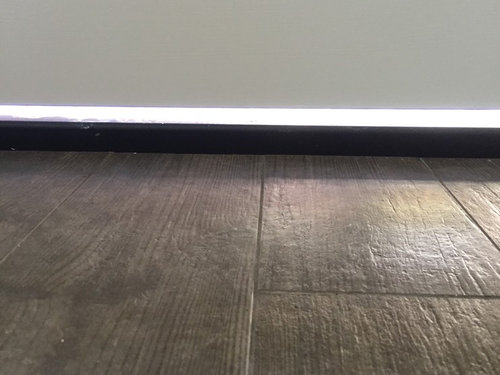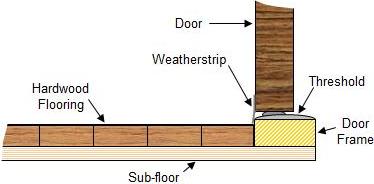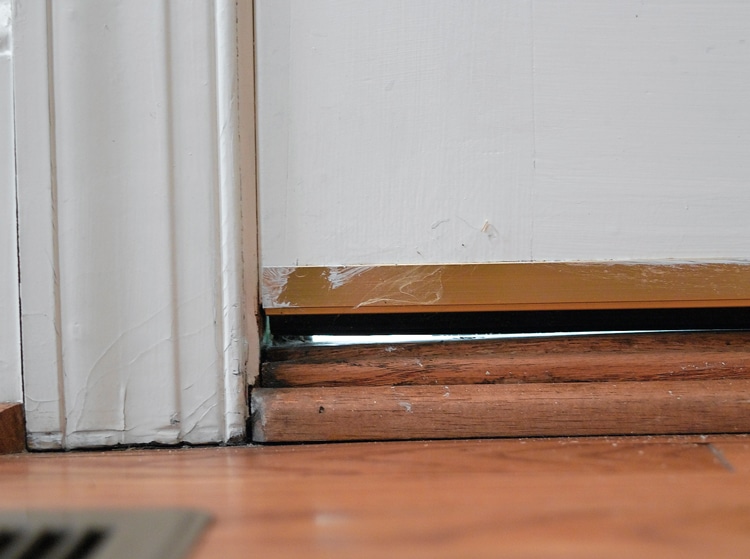Most entry door frames have a piece of lumber below the door and combined with the metal threshold will raise the base of the door off the concrete or wood sub floor by approximately 1 1 4 inches as shown in figure 2.
Standard gap between exterior door and floor.
The typical prefit for the lock stile hinge stile and head is 1 8 inch 3 mm measured on the widest face of the door.
Between a leaf of interior doors and the floor it is required to leave a gap of at least 2 2 5 cm to provide natural ventilation.
A gap of 4 cm is allowed for convenient and safe door opening.
The most common solution is to add wood planks to the floor not the door.
The usually are 1 2 to 3 4 inches thick.
Nfpa 80 s clearance dimensions apply to the entire perimeter around and under the doors and between paired doors.
In addition most trim carpenters hold the bottom of the door 1 above hardwood floors to accommodate any rugs that may get put on the floor.
These are most commonly available in unfinished oak or.
Reasonable gap between exterior door and threshold.
That is a lot of room for unlevel you have there.
They are specialized moldings usually about 3 to 6 inches wide with tapered edges.
The standard i use is 1 2 over finish floors 3 4 is acceptable.
To fix the issue the doors need to be removed bottom of the jambs cut and reset the door.
Craftsmanship standards on the other hand tend to want the gap below the door to be as small as 1 2 at times but this leaves no room for rugs.
They are centered under the door and reduce airflow and noise.
It is more effective to leave 4 mm and more for rooms with high humidity and for doors made from materials absorbing well moisture.
I have never seen a door set with that big of a gap unless it was to get past floors that were not level.
These are called saddles.
Except for fire doors i am aware of no standards for the gap or amount of prefit on a door either interior or exterior except as established by the individual door manufacturer.










